Teaching Integrated Science
Bachelor of Science
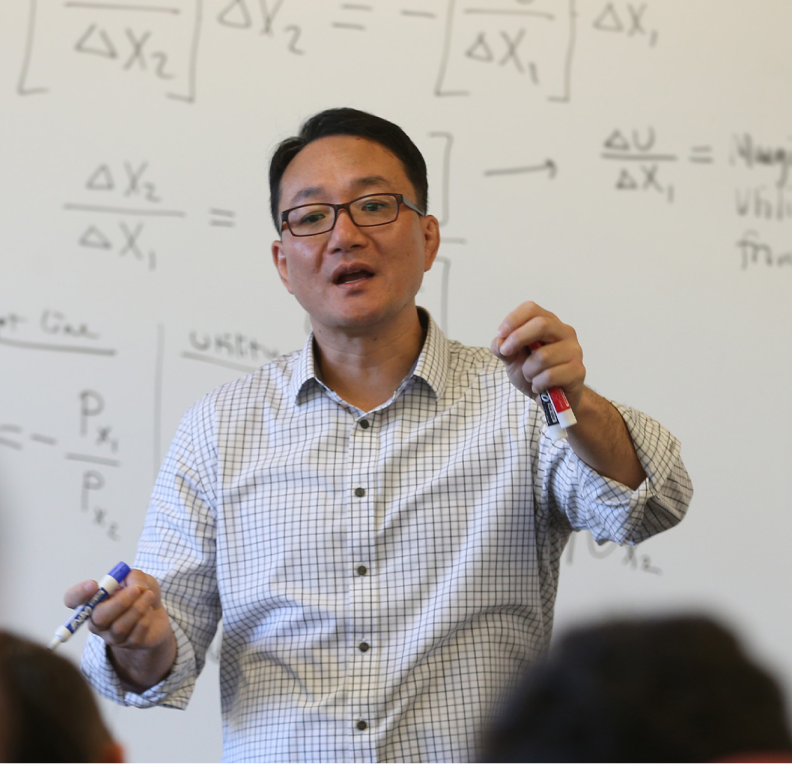
STEM and Education Courses: 28-29 Required Credit Hours
- BIOL 160: General Biology I............ 3cr.
- BIOL 161: General Biology I Lab............ 1cr.
- BIOL 162: General Biology II............ 3cr.
- BIOL 163: General Biology II Lab............ 1cr.
- CHEM 160: General Chemistry I............ 3cr.
- CHEM 161: General Chemistry I Lab............ 1cr.
- CHEM 162: General Chemistry II............ 3cr.
- CHEM 163: General Chemistry II Lab
- PHYS 116: Our Universe: The Earth ............ 2cr.
- PHYS 117: Our Universe: The Earth Lab............ 1cr.
- BIOL 120: Life: Ecology and People............ 2cr.
- BIOL 136: Life: Ecology and People Lab............ 1cr.
- BIOL 260: Intro to Environmental Science............ 3cr.
- BIOL 261: Intro to Environmental Science Lab............ 1cr.
- PHYS 118: Our Universe: The Sky............ 2cr.
- PHYS 119: Our Universe: The Sky Lab............ 1cr.
- MATH 156: General Statistics............ 3cr.
- MATH 146: Biostatistics............ 3cr.
- EDFD 101: Introduction to Education............ 3cr.
- EDFD 110: Human Development and Learning............ 3cr.
- EDSP 205: Foundations in Sp. Ed............. 3cr.
- EDSP 380: Classroom Management............ 3cr.
- EDMS 332: Meth/Curr/Asmt in Science............ 3cr.
- EDFD 251: Instructional Technology............ 3cr.
- EDMS 411: Clinical Experiences ............ 1cr.
- EDFD 450: Student Teaching Seminar ............ 3cr.
- EDRE 471: Content Area Literacy............ 3cr.
- EDMA 470: Student Teaching AYA............ 9cr.
31 Credit Hours Required
- BIOL 102: Life: Human Biology............ 2cr.
- BIOL 132: Life: Human Biology Lab............ 1cr.
- BIOL 230: Genetics............ 3cr.
- BIOL 231: Genetics Lab............ 1cr.
- BIOL 240: Evolution............ 3cr.
- BIOL 250: Ecology............ 3cr.
- BIOL 251: Ecology Lab............ 1cr.
- BIOL 497: Experimental Biology Lab............ 2cr.
- CHEM 240: Organic Chemistry I............ 3cr.
- CHEM 241: Organic Chemistry I Lab............ 1cr.
- MATH 140: Concepts of Calculus............ 3cr.
- PHYS 160: College Physics I............ 3cr.
- PHYS 161: Introductory Physics Lab I............ 1cr.
- PHYS 162: College Physics II............ 3cr.
- PHYS 163: Introductory Physics Lab II ............ 1cr.
31 Credit Hours Required
- BIOL 240: Evolution............ 3cr.
- CHEM 240: Organic Chemistry I............ 3cr.
- Chem 241: Organic Chemistry I Lab............ 1cr.
- CHEM 242: Organic Chemistry II............ 3cr.
- CHEM 243: Organic Chemistry Lab II............ 1cr.
- CHEM 226: Quantitative Analysis............ 3cr.
- CHEM 227: Quantitative Analysis Lab............ 1cr.
- MATH 140: Concepts of Calculus............ 3cr.
- PHYS 160: College Physics I............ 3cr.
- PHYS 161: Introductory Physics I Lab............ 1cr.
- PHYS 162: College Physics II............ 3cr.
- PHYS 163: Introductory Physics II Lab............ 1cr.
- BIOL 497: Experimental Biology Lab............ 2cr.
- CHEM 220: Principles of Physical Chem............ 3cr.
26-30 Credit Hours Required
- BIOL 240: Evolution............ 3cr.
- MATH 180: Differential Calculus............ 3cr.
- MATH 181: Integral Calculus............ 3cr.
- PHYS 170: University Physics I............ 3cr.
- PHYS 171: Explorations in Physics I............ 1cr.
- PHYS 172: University Physics II............ 3cr.
- ENGR 173: Explorations in Engineering............ 1cr.
- PHYS 330: Modern Physics I............ 3cr.
- PHYS 331: Modern Physics Lab ............ 1cr.
- PHYS 242: Circuit Analysis............ 3cr.
- PHYS 243: Circuit Analysis Lab............ 1cr.
- ENGR 342: Material Science............ 3cr.
- PHYS 355: Advanced Physics Lab............ 2cr.
- PHYS 395: Physics Research............ 3cr.
- PHYS 398: Physics Thesis............ 1cr.
The sample course sequence above illustrates class offerings for the Teaching Integrated Science (Grades 7-12) major. Consult the official Xavier University course catalog for detailed registration and advising information.
Recent Employers for Education Graduates
Gamble Elementary Montessori, Roger, Bacon High School, Princeton School District, Sacred Heart of Jesus School and Deer Park Community City Schools
Methodologies, Curriculum and Assessment in Science (EDMS 332)
Gain a solid foundation in teaching methodologies, safety protocols, assessment techniques, and curricular issues crucial for becoming a science teacher. You'll also have the opportunity to apply these concepts through required field experiences.
Clinical Experiences (EDMS 411 )
This course provides hands-on experience working with students of various ages in school settings. You'll learn about diagnosing learning problems, implementing effective remediation strategies, and utilizing assessment techniques. Weekly seminars will complement your field experiences. To enroll, you must provide proof of registration for all required state licensure tests to the Director for Secondary Education.
Student Teaching (EDMS 470)
As a student teacher, you'll gain valuable experience in secondary school teaching under the guidance of a licensed master teacher. You'll attend weekly seminars and participate in daily classroom observations and instruction.
General Chemistry (CHEM 160)
This course covers fundamental principles of chemistry, including atomic and molecular structure, states of matter, stoichiometry, energy relationships, the periodic table, and solution chemistry. You'll utilize mathematical concepts such as scientific notation, logarithms, the quadratic equation, and proportionality.
Our Universe: The Earth (PHYS 116)
Explore the Earth, energy, and environmental science from a physics perspective. This introductory course will provide you with a deeper understanding of our planet and its natural systems.
Educators for Justice
Are you an education major or minor looking to connect with Cincinnati's professional education community? Join Educators for Justice! Our monthly meetings offer opportunities for spiritual, intellectual and moral growth through professional development, service and community building.
Embrace Evanston
Join Embrace Evanston and help address educational inequality at Evanston Academy. As a member, you'll lead after-school programs, mentor students, tutor and participate in physical activities.
Alchemyst Club
This group of chemistry enthusiasts loves to experiment and discuss the fascinating world of matter.
Biology Club
Whether you're a biology major or simply curious about the natural world, Biology Club is for you. Join us for hiking trips, game nights, scavenger hunts, and visits to local zoos and aquariums.
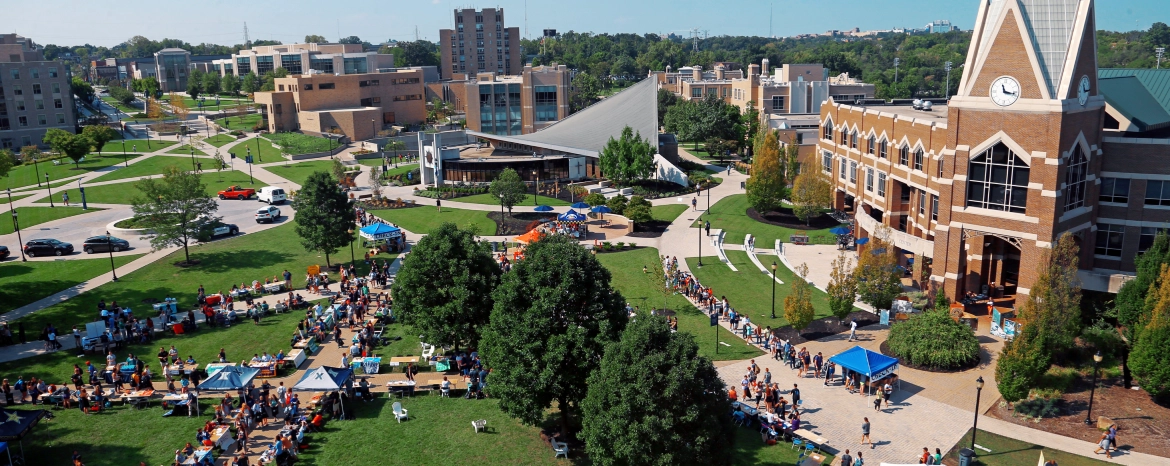
There’s nothing like experiencing campus for yourself. Schedule a visit and earn a $1,000 grant.*
Program Features
In Xavier’s education programs, “I have class” usually means you’re the one teaching it. Benefit from experiential learning that provides you with a holistic education
Connect with inspiring mentors who are practicing teachers and administrators in local schools, providing real-world insights and shaping your future career path.
We have partnerships with 50+ school districts in southwestern Ohio and northern Kentucky for field experiences and student teaching.
Xavier’s School of Education is fully accredited by the Ohio Department of Education and the Council for the Accreditation of Educator Preparation.
Latest
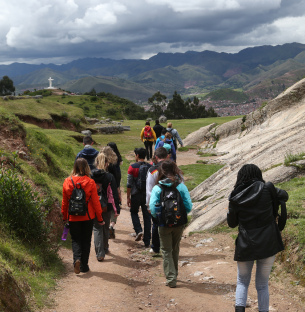
Xavier University’s School of Education offers various opportunities for students to learn beyond the classroom and travel the world.
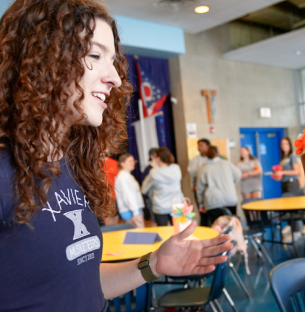
With a variety of programs and student clubs, students can gain hands-on experience in a wide-range of settings, from tutoring to educational outreach
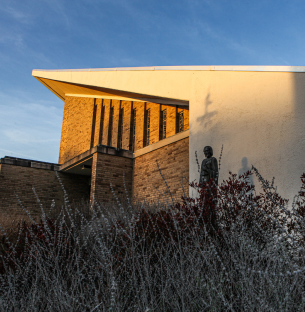
Meet five Xavier University education students, each with their unique story of what drew them to the classroom.
Join the Mini Muskies tutoring program and become a mentor to a nearby elementary school student.
Discover the hidden world of plant communication with Biochemistry Professor Kathryn Morris's groundbreaking research.
FAQ
Prepare for a successful career as a science educator by earning your BS in Teaching Integrated Science at Xavier. Discover more.
Xavier University’s education programs are designed to prepare students for licensure and/or certification in the state of Ohio. Upon graduation, you’ll be prepared to pass Ohio’s Educator License Assessment for Integrated Science.
As a Teaching Integrated Science major, you’ll specialize in one of three areas: Life Sciences, Chemistry, or Physics. This allows you to focus on your specific interests and gain deeper knowledge in your chosen field.
Yes. Xavier’s School of Education is fully accredited by the Ohio Department of Higher Education and the Council for the Accreditation of Educator Preparation. Additionally, Xavier University is accredited by the Higher Learning Commission (HLC).
Yes. The University Scholars Honors Program offers students in the teaching integrated science major a more challenging curriculum and close support from professors while completing their undergraduate degree. Acceptance into the program is highly selective and includes a $2000 travel grant.
Located in Cincinnati, Ohio
Cincinnati, Ohio is a city made for exploration. With parks, bike trails, and scenic riverbanks, there's more than just your dorm room to call home.
Teaching Integrated Science (Grades 7-12) Program at Xavier University
The undergraduate program in teaching integrated science is designed to lead to an Ohio teaching license. Students also complete a content area as their concentration and are awarded a Bachelor of Science. The teaching integrated science program is approved by the Ohio Department of Higher Education, and its licensure is approved by the Ohio Department of Education. All programs are accredited by the Council for the Accreditation of Educator Preparation (CAEP).
Xavier University's College of Professional Sciences prepares undergraduate and graduate students intellectually, morally and spiritually for careers and professions of service. CPS challenges students to strive for academic excellence and life-long learning through promoting collaboration and community partnerships, and incorporating research, scholarship and innovation.
Xavier University is a private university located in Cincinnati, Ohio, providing a liberal arts education in the Jesuit Catholic tradition. Founded in 1831, the University is the sixth-oldest Catholic university in the nation. It has been ranked among the top 10 master's-level universities in the Midwest by U.S. News & World Report for the past two decades. The Princeton Review names it one of the "Best 385 Colleges in America."